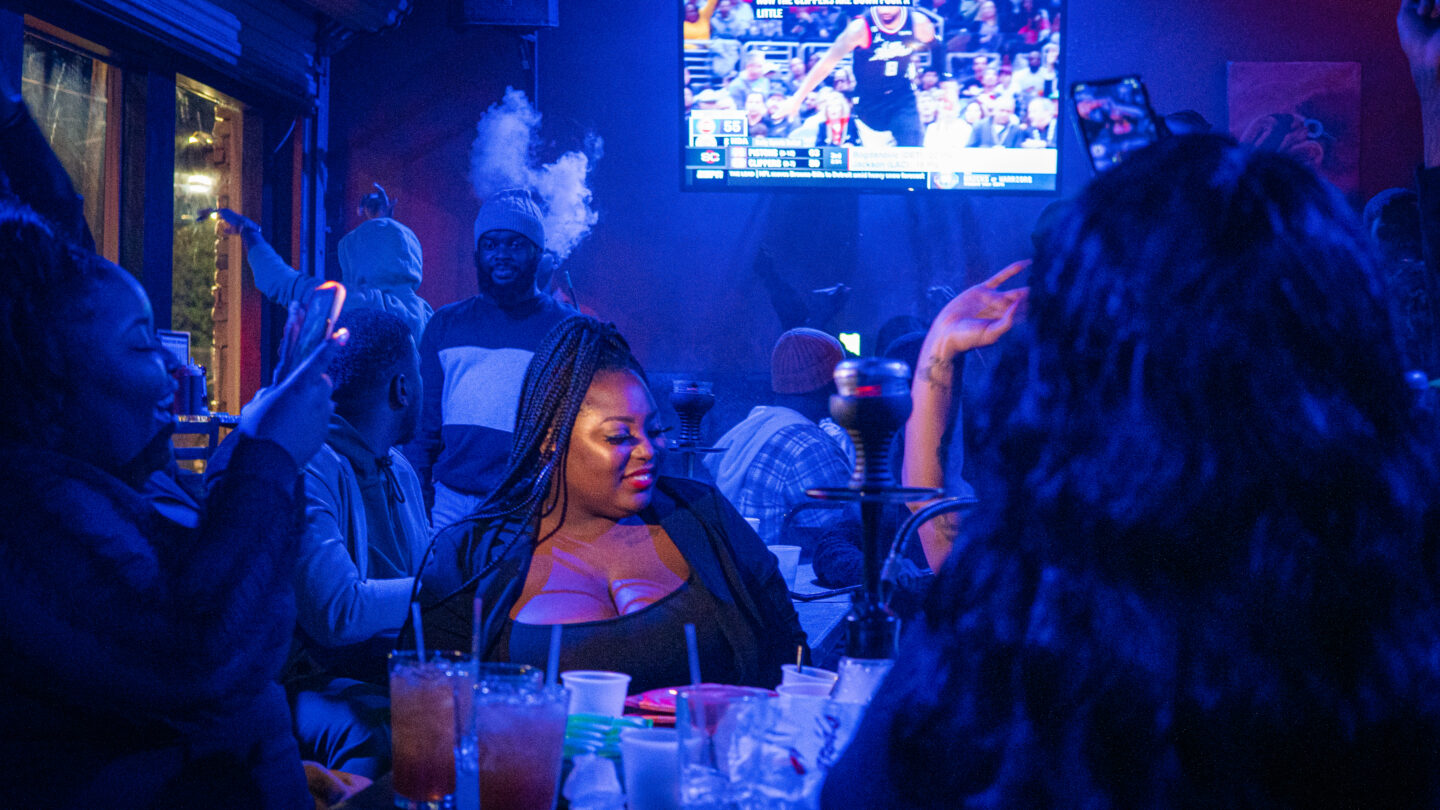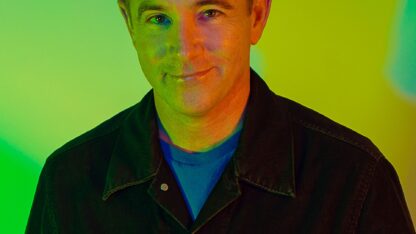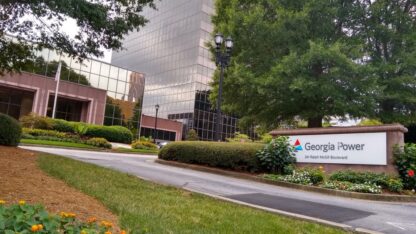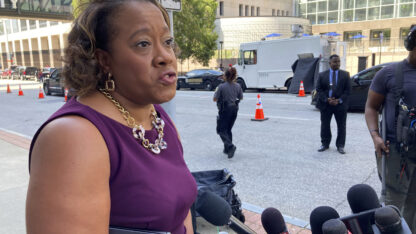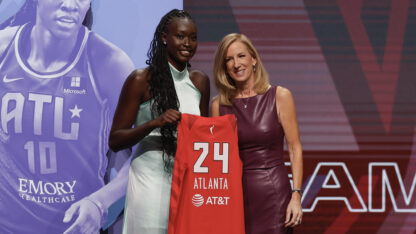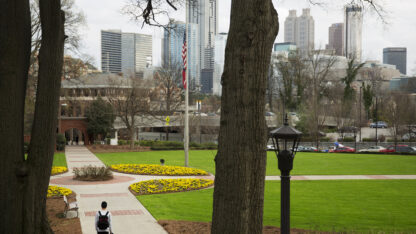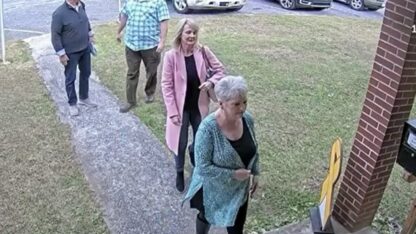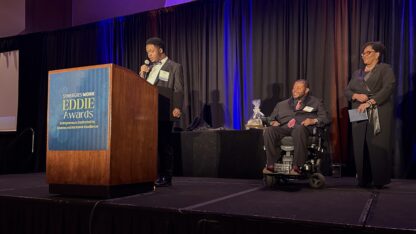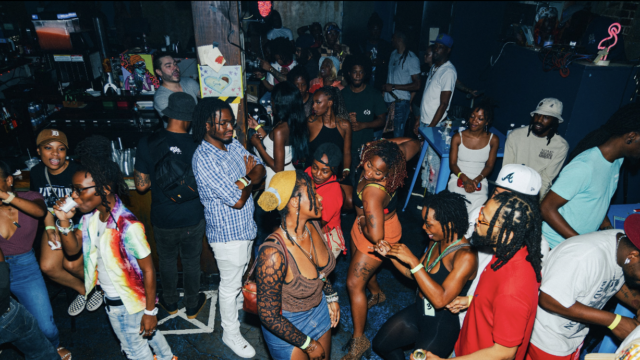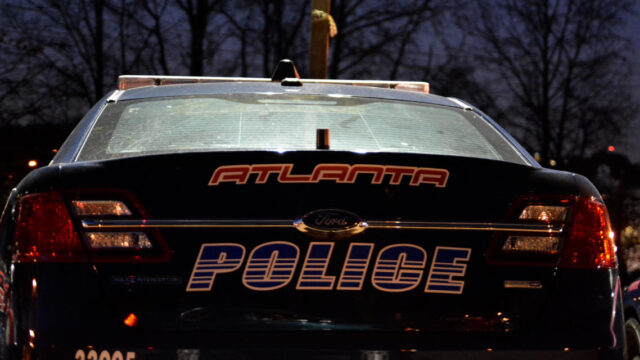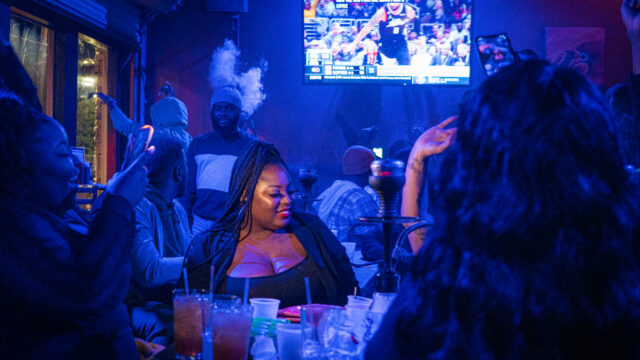This is Part 3 of the 3-part series: Nightlife in Atlanta.
Much of Atlanta’s modern cultural reputation is built on Black nightlife and entertainment. City leadership champions the positives associated with its cultural identity.
But real support for nightlife businesses has never really existed, says King Williams, a journalist and documentary filmmaker in Atlanta. In his eyes, past iterations of nightlife that once flourished happened in spite of the government, and not with it.
“There is no version of Atlanta in its history where a Black venue or Black strip of venues has been embraced by city leadership here,” Williams says.
Typically, having an identity tied to nightlife works well for cities like Nashville or Boston. But in a Black city, like Atlanta, things become more complex.
“I think for Atlanta, it comes in two folds. One of [them] is the respectability politics we’ve had in our city for over a century,” he says. “The other one is there are just too many people in the City of Atlanta who associate any Black establishment with violent crime and it’s hard for them to separate the two.”
He characterizes the current state of the industry as “mid.” Black nightlife businesses are under extra scrutiny from the city government because of Black businesses’ reputation for crime and a city that is leaning into gentrification and accommodating white residents. The industry has seen its ups and downs, but this “down” time feels different to him.
“Every version of Black nightlife in Atlanta has had something to kind of replace it and a new scene emerges and develops,” he says. “But this time, it doesn’t seem like any of those are coming.”
Historically, the city’s role in the nightlife industry has been limited to crime enforcement, and the permitting and liquor licensing processes — antiquated processes that some in the industry feel create an unequal playing field for small businesses and Black businesses.
This year, the city shifted its attention to nightlife. It has established a new nightlife office within Atlanta Mayor Andre Dickens’ office that’s focused on public safety, and a proposed city ordinance is putting pressure on businesses.
The city may have taken its first step with the creation of the nightlife office. But some fear that it has added another layer of enforcement onto the backs of businesses. Business owners want more support from the city that goes beyond policing it. It could be critical in preserving this industry that has brought identity to Atlanta for decades.
A Nighttime Mayor
The only position right now in the newly-established nightlife office is the director of nightlife, Michael Paul, also called the “night mayor.”
The office is housed in the Mayor’s Office of Film & Entertainment, potentially because of the nightlife industry’s ties with the music industry.
Seeds for the nightlife office were planted during former Atlanta Mayor Keisha Lance Bottoms’ administration, which had a focus on crime attributed to nightlife toward the end of her time as mayor. Paul was appointed by Mayor Dickens in April 2022. He serves as a resource for businesses that need assistance or clarity with certain things. Currently, he serves as an intermediary figure between businesses and city government. The city is still working on determining his authority.
Paul was not made available for an interview.
Philana Williams, co-director of the Office of Film and Entertainment, says the nightlife office creates another layer of accountability and advocacy for the nightlife industry.
“I think that Mayor Dickens’ forethought and just proactiveness in establishing a night division within itself shows that the city is very intentional about getting this right, and making sure that Atlanta stays a safe and vibrant place to go out at night,” Williams says.
Williams says that Paul does regular assessments of business, community engagement events and works with NPUs to hear their concerns about nightlife. Paul has a background in nightlife and entertainment and served as the president of the Castleberry Hill Neighborhood Association from 2017-2019.
Dickens also appointed a nightlife advisory council made up of stakeholders in the industry and business community. They meet periodically to make recommendations on improving nightlife in Atlanta. She says they have discussed how to improve the nuisance ordinance and the liquor licensing process. The list of advisory council members was not made available to WABE.
The office’s public-facing work has been centered on crime linked to nightlife spots. Williams estimates that 5 to 7% of businesses operate outside of the rules and says that the office’s goal is to focus on the “bad actors.”
The nightlife office has been holding quarterly public safety training sessions that are voluntary for nightlife businesses. The training sessions consist of different classes on topics such as responding in an active shooter situation, stopping the bleed and diffusing situations. There are also classes on making sure bartenders aren’t overpouring and recognizing the signs of someone being too drunk.
Sarah Kim, owner of Our Bar ATL, attends the trainings with her staff and is appreciative of the city’s effort in hosting them — even if they’re teaching things that workers in the industry already know. Still, she feels like the trainings are reinforcing a narrative that businesses are the only party responsible for mitigating crime.
“Instead of placing the entirety of blame for the rising crime on the backs of the businesses and the communities, what about uplifting APD and giving them the better training tools and wherever it is they need to promote the better and safer Atlanta that we all want.”
But the nightlife office, however limited, is a giant first step in building a bridge between city government and the business community. Prior to the office, no city staff was engaging with businesses beyond 9-to-5 hours. When “chaos and mayhem,” as Kim put it, would occur at night or on weekends, come Monday morning, it all became a matter of he-sad-she-said.
Now, they have at least one person working during nighttime hours.
“Nobody was really there other than APD .. to have a night mayor or somebody from nightlife division that specifically handles that, I think that can only help us, I’m assuming,” Kim says.
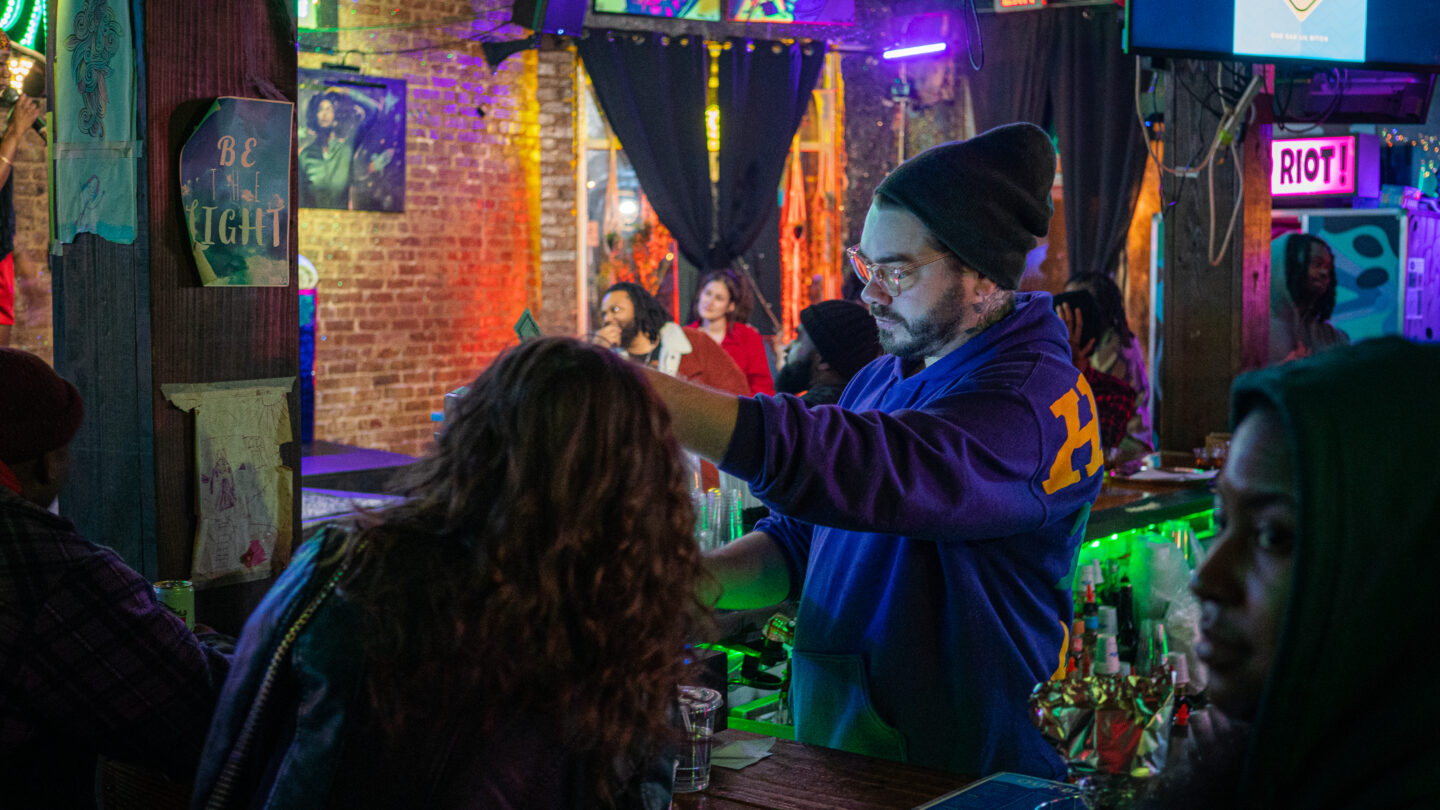
An Unlevel Playing Field
Any small business that has opened up in Atlanta has “swam against the current” to make it happen, says Johnny Martinez, co-owner of Joystick Gamebar and Georgia Beer Garden.
What could be an efficient process is marred by different hiccups throughout each step. The application process begins on an online, automated portal. Technical flaws on the site made it difficult for Martinez to complete the application for a business permit.
Various personnel issues extended the process. There was only one person with the fire department reviewing commercial building plans for the entire city. During the process, he says he encountered city employees who didn’t know how to use email and lacked basic computer skills. And there were employees facilitating the process that didn’t know what they were doing.
“We had to show them the code. We had to reference the code that they themselves did not seem to know,” Martinez says.
Businesses located in a historic district must get approved by the Urban Design Commission, a volunteer board of city residents. This step delayed Martinez by two months because he wasn’t lucky enough to have a full quorum at the first meeting he tried to attend.
“It took us over two years to open Georgia Beer Garden and that is 100% because of the City of Atlanta,” he says.
The expenses associated with constructing the Georgia Beer Garden put him in a financial hole that he couldn’t get out of until he could open for business. If he wasn’t already making money from another business, he would not have been able to open the business. Two years is a long time to go without making money, especially already operating at a loss.
Obtaining a liquor license is a similarly complex process that is required for any nightlife business to operate. It took Martinez 9 months to get a license for Georgia Beer Garden.
“When the City of Atlanta talks about clubs that have opened without actual liquor licenses, they’re doing things illegally that way, it’s usually places that tried to go through the system and it was taking so long and they just finally got to that point when it needed to make money,” he says.
All of this is accompanied by Atlanta’s liquor licensing laws, dubbed “Chapter 10,” which have a reputation for being outdated. This is where getting a license revoked is involved. The threat of losing your liquor license is just as detrimental as getting shut down. The liquor licensing process hasn’t changed since Martinez opened up Joystick 10 years ago.
(A 2021 audit of the Liquor License and Review Board found that they were failing miserably under the Bottoms administration’s purview.)
“Those are the processes that need to get fixed,” he says. “They don’t have to give small businesses money. They don’t have to give us grants. They don’t have to do anything other than make sure that the processes are easy, that they’re simple to understand, and that they’re fast.”
It’s all a daunting task for a singular person or a small team to complete. Larger businesses might have expeditors under their employ who are familiar with the process, and do things on behalf of the business owner. But Martinez says there are expeditors that operate alone. He alleges that they tend to be former city employees with connections at City Hall that can be paid to speed up the process. Martinez paid an expeditor $5,000 to speed things up.
“You pay them a nice big chunk of change, and suddenly you have a meeting. Suddenly, the paperwork starts to move … it feels like institutionalized bribery to me because I don’t know what’s happening to that money when we give it to someone.”
“But the reality is, unless you are a big developer or someone with deep pockets, it’s very, very difficult to get something open in a timely manner. And the process is frustrating and it’s expensive,” Martinez says.
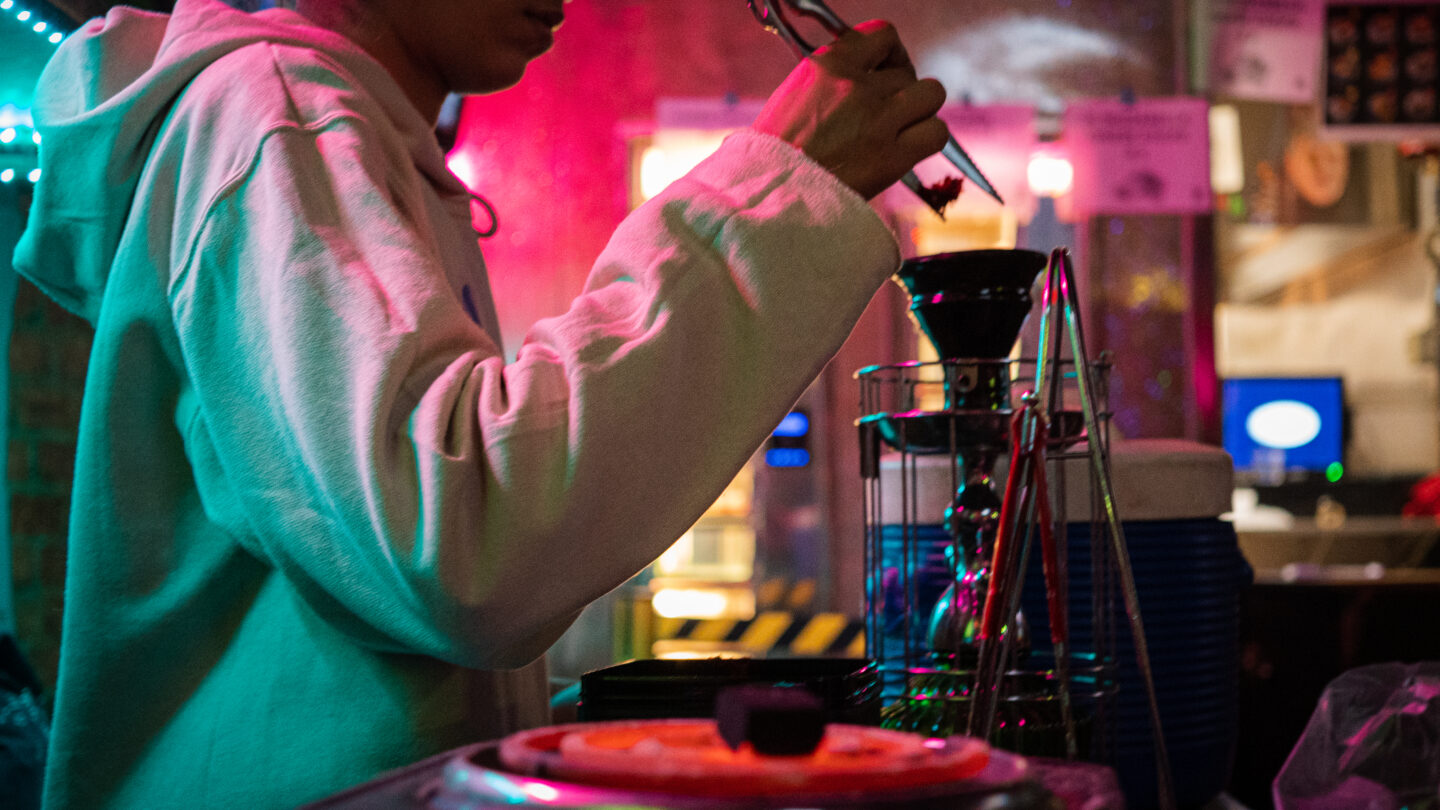
The Restaurant Model
The restaurant model has taken over Atlanta’s nightlife scene. It borrows elements from a restaurant, bar, hookah lounge, club — and sometimes a strip club — and its sum is a multifunctional space that appeals to anyone’s sensibilities.
It’s a tried-and-true formula that’s a safe bet for entrepreneurs breaking into the industry. It’s now the default for new Black nightlife spots, and the industry is becoming homogenous. But for some entrepreneurs, it’s the only viable option. Between navigating liquor licensing laws, fighting a criminal reputation and feeling pressure from gentrifying residents, it’s a lot easier to open a restaurant than it is to open a legitimate nightclub.
“I think with our liquor licensing laws, I think people are figuring out like, ‘Hey, I can get a restaurant license, get this lease together under this apartment complex or this spot in Grant Park at the Beacon, and I can bring in club numbers. We can make $60,000, $70-80,000 a week at a restaurant,'” says Dona Mathews, co-founder of the Atlanta Hospitality Collective.
The restaurant model is a result of all the strains that the industry is feeling. And the city is doubling down on its crackdown of these restaurants by enforcing a new rule that restaurants must make at least 50% of their sales from food.
She wants local laws to be reformed to prevent “rogue operators” from setting up shop and trying to make “fast money.” She wants to see more businesses have longevity, which is something she’s not seeing much anymore.
“To have a sustainable and healthy nightlife void of all of the issues that we face in our clubs, we really have to have a partnership with the city. We have to have a partnership with APD,” Mathews says.
Even though Atlanta has a night mayor now, she’s not at rest. Mathews referenced the nuisance property ordinance as proof that more work needs to be done for this industry, which she credits as the reason Atlanta is a destination for people of color.
“I think like as far as doing the job of building that foundation, I think Andre [Dickens] gets it because he appointed somebody that gets it,” Mathews says. “But there’s still work that needs to be done.”
